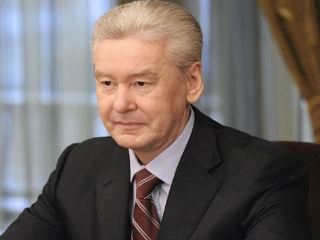by
Martin Banks
His victory in September's mayoral elections is widely seen as being partly a ringing endorsement of the role he has played in overseeing the city´s remarkable transformation.
Moscow is fast emerging as an economic powerhouse to rival other great city states of the world - and much of the improvement has taken place under the stewardship of Sobyanin.
Sobyanin, aged 55, swept to victory in the first direct election for the city’s leader in a decade in the first round. A Conservative nationalist and President Vladimir Putin´s former chief of staff, he was first appointed mayor in 2010. The post is, after the presidency, possibly the most powerful job in Russia.
His predecessor, Yuri Luzhkov, spent 18 years in the job until he was abruptly dismissed by then president Dmitriy Medvedev.
There are, in fact, few cities in the world currently experiencing such solid and sustainable growth as Moscow, with Sobyanin credited in playing a crucial role in the massive improvement, in particular in infrastructure.
Russia’s recent rapid economic success with a 6.5% growth forecast this year has also created a well healed middle-class with fewer financial commitments. Some 70% of the earnings of the average Muscovite is disposable compared with just 40% in Western Europe.
Over half of all investment into Russia goes into Moscow and 1 in 7 of Russians now live in the capital or its surrounding satellite cities. Its estimated population of 10.6m is 2m more than that of London.
The huge improvements are largely being achieved through a strategy of building on the wealth generated by energy resources and diversifying into a wide range of industries and sectors such as ICT and telecoms.
Russians have also become fanatical shoppers spending 60 per cent of their income on retail purchases compared with the Germans who spend 28 per cent on shopping, according to retail property consultants Jones Lang LaSalle who, in their March report, tip Moscow to have one of the highest retail growth rates in Europe of the next three years.
Moscow is also currently in the spotlight for another rather important reason - the preparations it is making for the 2018 World Cup.
In an exclusive interview with EBR, Marat Husnulin, Moscow´s Deputy Mayor, says so much progress has been made in improving the Russian capital’s once notorious road and rail infrastructure recently that when it comes to transport they are ‘ready now’ to stage the tournament, 2nd only to the Olympics in prestige.
“The World Cup may still be five years away but in terms of our transport infrastructure we are adequately ready now,” declares Husnulin, who is responsible for urban development and construction in the city.
He added, “There are even more changes to come during next five years such as 400 km of new roads and fly-overs to be built.”
He said, "Moscow used to be quite difficult to get around but massive investment on new roads, bridges and fly-overs including an entirely new third inner ring road has changed all that.
"The same is true of the rail and underground network which has already been fully modernised. In the past few years, 13 kilometers of new underground has been built and six new underground stations have opened."
He went on, “This has improved the transport situation for 600,000 Muscovites. By the end of this year 14 more kilometers will be built, which will beat the Soviet record when even in the best times never exceeded 13 kilometers per year.
“We plan to improve transport situation even further in order to make travel comfortable inside the city as well as between Moscow and Moscow region with 20 new underground lines totaling 160 kilometers making life for millions of residents easier.
“At the same time we will perform modernization of railway transport. Under this program it is planned to build 240 additional kilometers of rail and purchase 2,500 of modern carriages, as well as building convenient connection hubs for railways and underground," he added.
"Moscow will be a perfect base for football fans with easy and affordable transport and lots to see and do between matches.
"Moscow won't be caught out with last minute infrastructure problems, because today we do our best to be well ahead of the game.” he went on.
Public transport reliability and travel times have been significantly improved, for example from the main Moscow international airport to Red Square in the heart of the city is less than an hour.
Moscow, then, is clearly emerging as an economic powerhouse and it´s little wonder that a 2013 Ernst and Young report on Russia said that Moscow will be the most dynamic and prosperous city in the world by 2025.
Perhaps more than the other BRICs economies of Brazil, India and China, Russia´s growth, led by Moscow, is at a more sustainable pace and direction with a highly developed and diversified services sector and high-end manufacturing driven by innovation and sheer ambition to succeed.
Moscow rapidly emerging as a true global city state
Moscow´s newly re-elected Mayor Sergei Sobyanin is looking forward to another term in office, managing a city of over 12m people.

Moscow, then, is clearly emerging as an economic powerhouse and it´s little wonder that a 2013 Ernst and Young report on Russia said that Moscow will be the most dynamic and prosperous city in the world by 2025.



 By: N. Peter Kramer
By: N. Peter Kramer
